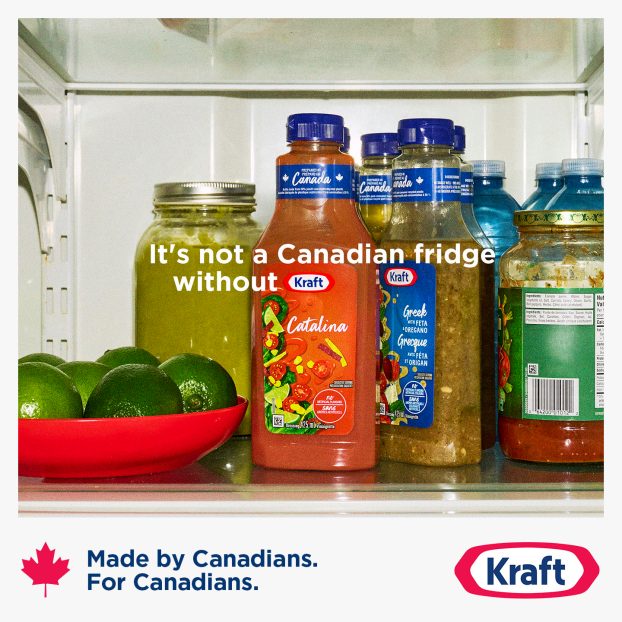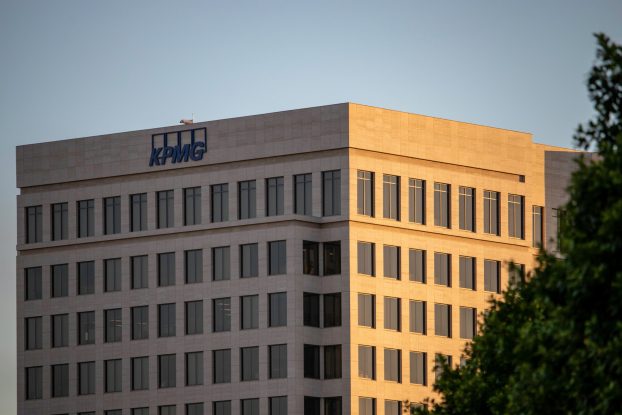How do you hitch a ride on the most glamorous coat-tails of all? You cough up whatever it takes to sponsor activities at a top film festival. Then you break out your glad rags and prepare to party with the glitterati – and with your board of directors when annual report time rolls around and you end up looking like a star.
Film festivals are now seen as such enticing investment opportunities that, beginning next January, 14 major American fests will begin marketing their sponsorships jointly, with multi-venue packages ranging from US$300,000 to US$600,000.
Dubbed the U.S. Film Festival Circuit, the concept was the brainchild of Robert Tuehman, CEO of New York City-based TSE Sports and Entertainment, which will peddle the film festival sponsorships along with its portfolio of sports opps. Tuehman told Strategy that no such deals are underway on this side of the border, but he’s ‘definitely interested’ in adding Canadian film festivals to the circuit.
Actually, the Canuck fests are doing just fine on their own. Platinum sponsorships – for which the competition is fierce and the waiting lists long – run to a hefty six figures at our two biggies: the Toronto International Film Festival (TIFF), now underway for its 27th year, and the Festival des Films du Monde in Montreal, which just concluded its 26th year.
Hot on their heels are younger fests including Halifax’s Atlantic Film Festival, which begins this Friday; the Vancouver International Film Festival, commencing September 26; and the Calgary International Film Festival, Oct. 1-6.
You don’t have to bust the budget to reap terrific ROI by snagging a sponsorship or becoming an official supplier at a film fest because the fees are on a sliding scale and co-sponsoring opportunities abound.
The events pay off as grand-slam venues for showcasing brands and products to not just filmgoers, but also the thousands of deep-pocketed domestic and international wheeler-dealers who do business at the festivals. Plus you get to sport a shiny community-booster halo, and offer your key clients the delicious treat of hobnobbing with movie stars.
Today, the benefits of investing in film festivals are obvious. But it took 15 years of slogging before big Canadian companies saw the light and began scrambling on board, says Lori Willcox, TIFF’s director of sponsorship.
‘In the early years, it was mostly us twisting the arms of various board members and saying ‘give us donations because it’s a good thing to do.’ Not a lot of thought was paid to returns on their investments.
‘But that all changed after 1993, when we did a major audience research study with Decima and got a true picture of who our festival-goers are, their interests and incomes and purchasing habits,’ Willcox recalls. ‘And that’s what enabled us to have much more educated discussions with companies about how we can work together to achieve our [respective] objectives.’
That turning point helped in TIFF’s transformation from ‘bohemian chaos to a smoothly run corporation,’ to quote from Maclean’s movie critic Brian D. Johnson’s Brave Films, Wild Nights: 25 Years of Festival Fever. Since then, Willcox says TIFF’s seven-member, year-round marketing team has managed to drive annual sponsorship revenue of the festival to nearly $4 million – a sizeable chunk of the fest’s approximately $10-million budget.
While TIFF’s legendary programmers scour the world for the best movies for the festival’s ultra-eclectic, 10-day marathon, the marketing team negotiates deals – often innovative, multi-platform and co-branded – with scores of sponsors and suppliers.
These deals begin with the festival’s highly coveted top-sponsor slots, which are currently occupied by AGF, Bell Canada, Visa and Volkswagen. Incidentally, VW’s spot only opened up because Ottawa’s stringent new rules for tobacco sponsorships forced Benson & Hedges to drop out two years ago.
Other sponsors include such newcomers this year as Amazon.ca, which – in an effort to publicize its Canadian debut – set up an online boutique offering items of interest to movie buffs. TSX Group is also a new name, but it’s actually the recently rebranded Toronto Stock Exchange, which Willcox says chose TIFF to publicize its new moniker and logo. Another interesting newcomer is Toronto’s Really Creative Ideas, a newly minted Internet-based system for hooking up movie and TV writers with producers hunting for material.
The next tier is made up of the ‘official suppliers’ of everything from telephones and TIFF’s Web site (Bell), to media (Citytv, 98.1 CHFI and the National Post), to beverages (Piper-Heidsieck Champagne, Jackson-Triggs Vintners, Sleeman Brewing & Malting, Second Cup, Evian, Diet Coke), to vehicles (Volkswagen and Thrifty Car Rental), to souvenir clothing items (Roots), to courier service (Federal Express). More unusual is Chanel’s hotel suite, where make-up and hair services are available to official festival guests.
All suppliers and sponsors not only showcase themselves throughout the festival but also have the right to leverage the TIFF brand in their own marketing activities.
And then there are the star-studded gala premieres at Toronto’s Roy Thomson Hall, preceded and/or followed by glitzy receptions and dinners. Invitations are generally the hottest ticket on the corporate hosting calendar. And that’s especially interesting because most sponsors are not told which movies they’ll end up hosting until about two weeks before a festival begins – well after they’ve sent invitations to the folks they most want to impress.
Contrary to their cautious investment style the rest of the year, most sponsors have actually embraced this pig-in-a-poke aspect of the galas and happily accept whatever they get. Says Willcox: ‘They understand that what they’re really supporting is the festival itself as well as the Canadian film industry.’
Besides, especially in the current brokers-in-handcuffs climate, the TIFF staff is way too savvy to hook up, say, a financial services company with a film such as this year’s The Good Thief. Even so, some fascinating moments have occurred through the years (see ‘Cinematic roulette’ on right).
What follows are some striking examples of the ingenuity the best players put into the sponsorship game.
AGF
‘We sponsor the film festivals partly as a commitment to the communities where we have offices,’ says Pat Phillips, director of communications at the Toronto-headquartered mutual funds giant. ‘But it’s also a good fit with our brand. In fact, we’re using our own tagline – ‘What are you doing after work?’ – in posters and other festival materials.’
In Toronto and Calgary, Phillips’ company sponsors the AGF People’s Choice Awards and, in Vancouver, the AGF Dream Draw. At each event, the winner of the ballot draw receives $5,000 towards (what else?) a mutual fund investment. In return, AGF gets to run quirky, 20-second trailers at the beginning of every film reminding people to vote, which means AGF’s name and support are publicized hundreds of times to thousands of people.
Bell Canada
One of the first sponsorships Bell pursued when its services spread to B.C. a couple of years ago was the Vancouver International Film Festival where, this year, the company is hosting the closing night gala. In Toronto, Bell’s major contribution is the creation and management of TIFF’s much-acclaimed Web site (www.e.bell.ca/filmfest). Real-time communication with festival-goers is also provided online, via both PCs and mobile phones, including spontaneous ‘TIFF alerts’ with breaking festival news and ticket availability updates.
‘These features, as well as our new ‘Festival Insights’ – which are online interviews with TIFF programmers – are hugely popular and have been a key strategy in growing the festival,’ says Louise Bellingham, Bell’s senior director of sponsorships, donations and university research. ‘They add value to the festival experience and that’s the whole point of us being there as a sponsor.
‘[These activities] are also a showcase for demonstrating our technology and how it can make a difference. We’re not just there slapping our logo on something.’
Bell also sponsors posters throughout the Toronto area to drive traffic to the TIFF Web site, as well as hosting one of the galas. Bellingham says there are no worries about what kind of film they’ll end up with. ‘Part of our brand positioning with the festivals is to be viewed as a leading-edge kind of company. So putting our brand together with theirs in this way is of real benefit.’
Visa Canada
Visa leverages its sponsorship of film festivals in Vancouver, Montreal and Toronto in two major ways, says senior product manager Jennifer Barnes.
One element is offering exclusive ticket packages, including advance purchasing opportunities, to Visa cardholders. And the other is the establishment of ‘Visa Screening Rooms’ inside a major cinema venue in each city (the Vogue in Vancouver, the Imperial in Montreal and the Elgin in Toronto).
These posh, branded lounges offer festival-goers who purchase special Visa passes the chance to avoid the long queues outside, relax, chat and snack for up to an hour before screenings and then choose the best seats before other patrons are allowed in. These passes sold out a mere four hours after they became available in Toronto.
As for corporate hosting, Barnes says many of the member banks that issue Visa cards do ‘a considerable amount of entertaining for some of their best clients.’
Volkswagen Canada
At both the Atlantic and Toronto film festivals, colourfully logo’d VW Passat W8s will be seen zipping around the city transporting guests and staff hither and yon, says J.J. Hochrein, account director at Vickers & Benson Arnold of Toronto. Another Passat, plus a Jetta wagon, will be displayed inside Roy Thomson Hall.
The company also sponsors the Volkswagen Discovery Award for first-time filmmakers, handing the winners a VW hubcap trophy. In addition, Hochrein says the company does a trailer for the winning film and sponsors the official festival program guide in Toronto.
As for corporate entertaining, he says Volkswagen leverages its festival sponsorship as ‘a great opportunity for us to thank our dealers, and for them to thank their customers’ with invitations to galas and other events.
Rogers
Providing virtually non-stop broadcast coverage of TIFF events on its own channel is one way Rogers maximizes its investment. Sponsoring the Industry Centre, in which films are bought and sold by about 2,000 international delegates, is another, says communications VP Jan Innes.
In addition to sponsoring the opening night in Vancouver and a gala in Toronto, Rogers – like other major sponsors – enhances its visibility with dramatic signage and advertising in the program guides.
Why does Rogers make such a large investment? ‘We’re in the film and television business,’ says Innes, ‘so these sponsorships make sense for us [and pay off with] a lot of recognition, especially within the industry.’
National Post
Serving as TIFF’s official newspaper has conferred ‘huge cachet’ on the National Post, says national VP of promotion Lynne Munro. And the guiding principle of its sponsorship is ‘selling more newspapers [by] making all our readers feel as if they’re part of the festival, whether or not they…have tickets to a gala.’
The Post, and its strategic CanWest partners at Global Television and CHFI radio, pull out all the stops with coverage throughout the festival.
Additionally, the Post publishes a glossy official supplement listing all films and TIFF events. Finally, giant ads for a multi-prize contest have appeared in the paper since mid-August offering the winner everything from VIP treatment at the festival to a $1,000 shopping spree at posh Hazelton Lanes, and even a walk-on role in an upcoming feature film produced by Fireworks, another CanWest partner. The Post also sponsors the closing night gala.
CHUM Television
‘As the largest funder of broadcast film in Canada, and a supporter from the very beginning, CHUM Television supports the Toronto film festival rather aggressively,’ says Mary Powers, VP of communications and promotions.
‘We’ve co-sponsored the Toronto City Award for best Canadian feature film [splitting the $25,000 purse with the city] for 19 years and offered the [$15,000] Citytv Award for best Canadian feature by a first-time filmmaker for six years.
‘As [TIFF] has progressed, it’s become more and more difficult to make your sponsorship stand out from all the others. So, for us, the perfect vehicle is the Perspective Canada program,’ Powers adds. This is kicked off by the now-famous Citytv Festival Schmooze, an A-list party presented by Volkswagen at Citytv’s headquarters and broadcast live for 90 minutes.
Famous Players
Arguably the most appropriate film festival participant of all – because of its status as Canada’s oldest surviving movie chain – Famous Players is a sponsor in Halifax, Montreal, Toronto and even Sudbury, Ont., contributing perhaps the most essential element: screen time at its cinemas.
At every event, says corporate communications VP Nuria Bronfman, ‘the whole city gets swept up in festival fever. It’s just so exciting to spot luminaries from all over the world walking around our streets.’
Cinematic roulette
Controversy and discomfort are always a risk in a game where sponsors can’t pick their flick
Making investments with their corporate eyes closed just isn’t what big, bottom line-oriented companies do. But that’s the basic deal at film festivals. No matter how big a cheque a sponsor writes, it’s strictly a Forrest Gumpian box of chocolates. Sponsors never know what they’ll end up offering the clients and investors who matter to them most – not until about two weeks before they’re actually squirming or cheering in their expensive VIP seats.
The only exceptions are for the opening and closing night premieres, which are announced ahead of time. Sometimes these match-ups prompt jubilation in the big corner offices and sometimes they provoke trepidation.
At this year’s Toronto International Film Festival, for example, opening night sponsor Astral Media wound up with Ararat, Canadian director Atom Egoyan’s controversial drama about genocide in Armenia. At this writing, rumours were flying that Turkish protestors might make the red carpet trek into the screening as uncomfortable as its counterpart was back in 1978, when Midnight Express was picketed by protestors objecting to the film’s brutal depiction of Turkish prisons.
But even that clash paled in comparison with the near-riot that preceded the gala for In Praise of Older Women the same year. With well-publicized threats from the Ontario Censor Board swirling, far too many people turned up to see what the fuss was about. As the theatre doors were slammed and locked, on orders from the fire department, gold patrons – who’d plunked down the then-astronomical sum of $1,000 – were turned away in droves. And the president of Labatt, which was then the fest’s biggest sponsor, had to physically fight his way inside.
Movie star behaviour is another unknown. Will the stars even show up at your gala? And if they do, will they charm your guests or snub them? There’s just no way of knowing beforehand. One year, American Express happily kicked in $35,000 to sponsor a tribute to Warren Beatty – only to have the actor refuse to seemingly endorse the company.
Over the years, there have been many sponsorship jackpots in the form of sleeper hits that premiered in Toronto and went on to worldwide acclaim. These include Chariots of Fire and The Big Chill in the early years and, more recently, Life is Beautiful and Shakespeare in Love.
But just imagine sitting beside your stuffiest board member, or potentially most lucrative client, and their oh-so-proper spouses, as 1992’s Leolo flickered on screen, depicting a 12-year-old boy masturbating with a piece of liver.
Sponsors such as National Bank Financial have learned to roll with the punches, says Vincenza Sera, managing director of investment banking.
Through its six-year sponsorship of the closing night gala, her company’s 130-member parties have ridden a bit of a rollercoaster. They were thrilled to spend time with Brad Pitt the year he starred in Seven Years in Tibet and with Tom Hanks when he presented his directorial debut, That Thing You Do. But the smiles were fewer and farther between during the oddball How to Kill Your Neighbour’s Dog and last year’s dark thriller Lantana.
This year, Sera says her colleagues and clients are looking forward to having their photos snapped with Antonio Banderas, who stars in Femme Fatale, a film noir from director Brian De Palma.
Similarly, the powers that be at the National Post aren’t worried about the response among their 200 invited guests when they host the gala premiere of quirky Canadian director David Cronenberg’s psychological thriller Spider, starring Ralph Fiennes. But the Post’s national VP of promotion, Lynne Munro, says it was a somewhat different story when they ended up with a weird, still-unfinished (and ultimately unreleased) film called Women Talking Dirty. The good part was meeting Elton John, whose partner produced the movie. The bad part, she says, was when a rival newspaper ended up with superstar Denzel Washington in the hugely successful biopic The Hurricane.
‘But that’s the true spirit of the film festival,’ adds Munro. ‘Once you know who you’re going to the party with, you make the best of it and, in our case, celebrate and promote it every way we can.’























